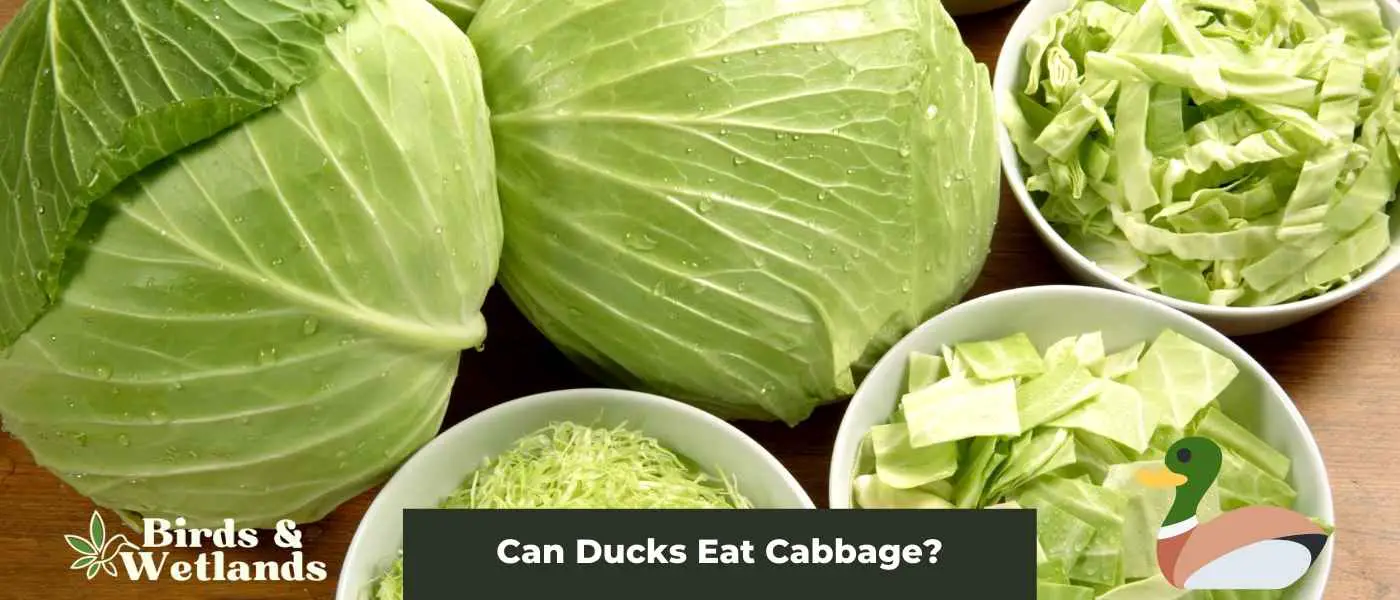While ducks are known for their love of water, did you know that they also enjoy munching on cabbage? In this article, we’ll explore whether cabbage is a safe and nutritious snack for ducks, and discuss the potential benefits and risks of feeding this vegetable to our feathered friends.
Yes, ducks can eat cabbage as it is a safe and nutritious food option. Cabbage is rich in vitamins, minerals, and fibre, which can contribute to a duck’s overall health. However, ensure that the cabbage is chopped into small pieces for easier consumption and offer it in moderation.
Key Takeaways on Feeding Ducks Cabbage
- Ducks enjoy leafy greens and they need a varied diet. Raw cabbages are especially nutritious treats for ducks, providing them with essential vitamins and minerals.
- Feeding wild ducks cabbage is a great way to give them a healthy snack and help keep them happy and healthy.
- Keep in mind that too much cabbage can lead to diarrhea so give cabbage leaves in moderation.
What Are the Health Benefits of Eating Cabbage for Ducks?

Are you thinking about raising backyard ducks? There are a few things new duck owners need to know in order to provide them with the best possible care. One of the most important is their diet.
Ducks need plenty of fresh fruits and vegetables. For instance, they can eat both the stalks and sprouts of Brussels sprouts. They also love eating raw or cooked cabbage.
Here’s why cabbage is good for ducks:
Improved Immunity
Cabbage is rich in vitamin C, which boosts immunity. Ducks are regularly exposed to many bacteria and viruses, so a strong immune system is essential.
Cabbage leaves also contain other vitamins and minerals that help keep ducks healthy. So, eating cabbage can help geese and ducks stay healthy and fight off disease.
Proper Digestion
Ducks eat a lot of fiber-rich foods, such as cabbage. This fiber helps add bulk to their stool, making it easier to pass. The water in cabbage also helps keep ducks hydrated, which is essential for proper digestion.
Ducks sometimes suffer from constipation, so eating fiber-rich foods like cabbage can help them stay regular.
Good for the Heart
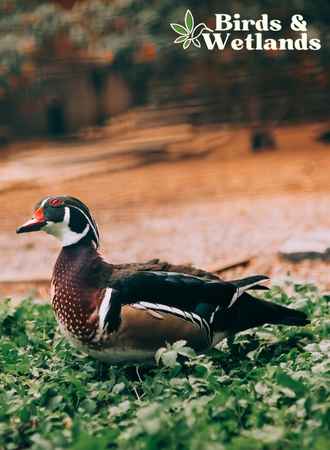
Ducks who eat cabbage have been shown to have healthier hearts than those who do not eat cabbage. Cabbage is high in magnesium and potassium, essential for good heart health.
Cabbage is also a good source of fiber, which can help reduce cholesterol levels and keep the arteries clear. Regularly eating cabbage can help to keep the heart healthy and functioning correctly.
Develop Strong Bones
Cabbage is a source of many essential nutrients for bone health, including calcium, phosphorus, and vitamin C. These nutrients work together to help promote bone growth and development.
In addition, cabbage also contains compounds that can help reduce inflammation in the body, which is another critical factor in maintaining healthy bones.
Ducks who eat a diet rich in cabbage are less likely to develop osteoporosis or other bone-related diseases.
Sturdy Eggshells
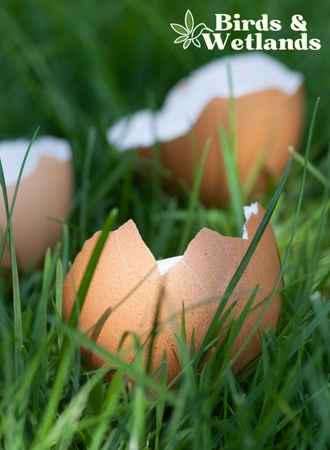
Cabbage is rich in calcium, which is essential for developing strong eggshells. When female egg-laying ducks eat cabbage, it prevents them from laying thin-shelled eggs. The calcium in cabbage helps fortify the eggshells, making them less likely to break during incubation.
As a result, female ducks who eat cabbage can produce healthier offspring with a greater chance of survival.
Can Ducks Eat Cooked Cabbage?
Ducks can eat cooked cabbage, a good source of vitamins and minerals for adult ducks. Cooked cabbage is easy for them to digest. Cooking cabbage should be easy and can be mixed with their pellets.
You can give your duck cooked savoy cabbage as a treat or add it to their regular diet. If you’re adding cooked cabbage to your duck’s diet, make sure to give them a variety of other foods to get all the nutrients they need.
One thing to remember is that cooked cabbage can be challenging for ducks to digest if they’re not used to it. So, if you’re giving your duck cooked cabbage for the first time, start with a small amount and see how they do.
If they seem to be doing fine, you can increase the amount you give them. But if they have any problems digesting the cooked cabbage, reduce the amount you’re giving them or stop giving it to them altogether.
Can Ducks Eat Frozen Cabbage?
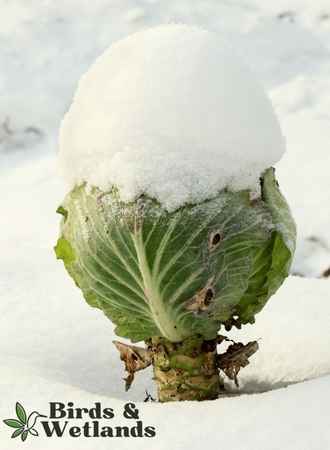
Frozen cabbage is a nutritious treat for ducks and a healthy way to keep them cool in the summer heat. Plus, it’s a low-cost food you can easily find at your local grocery store.
If you have never given your duck frozen cabbage before, here is a quick and easy guide. First, cut the cabbage into small pieces. You can also shred the cabbage if you prefer.
Next, place the cabbage in a bowl or container and put it in the freezer for at least two hours. Once the cabbage is frozen, give it to your duck and let them enjoy it.
Can Ducks Eat Raw Cabbage?
Ducks can eat raw cabbage. Cabbage is a good source of vitamins and minerals for ducks and can help keep their digestive system healthy.
It is important to make sure that the cabbage is chopped into small pieces before feeding it to your duck, as they can choke on larger pieces of cabbage.
Can Ducks Eat Red Cabbage?
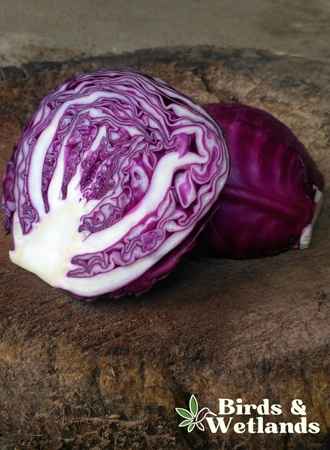
Ducks love to eat cabbage, especially red cabbages. Red cabbage contains more nutrients than green cabbage. It is a good source of fiber, vitamins C and K, and antioxidants.
Can Ducklings Eat Cabbage?
Cabbage is a healthy vegetable with nutrients, but can ducklings eat it? The answer is yes, but only in moderation. Cabbage should not be their primary food but can be given as a treat.
Ducklings need a diet primarily consisting of watery foods like pondweed and duckweed. However, your feathered friends can also eat small amounts of solid foods like cabbage. Cabbage is a good source of vitamins A and C and fiber.
How to Feed Cabbage to Ducks
Here are a few tips on how to feed ducks cabbage:
- Leave the cabbage head intact, and let them peck at it.
- Throw out the entire cabbage if its head and insides start withering.
- Don’t mix cabbage with iceberg lettuce which has very little nutritional value.
- Avoid mixing cabbage with bread. Bread in particular can make your duck overweight.
- You can also give them pickled cabbage or finely chopped cabbage. Just make sure that the vegetables are fresh and clean, and you’re good to go.
- You can supplement raw or cooked cabbage with root vegetables such as sweet potatoes and carrots.
Other Foods to Consider for Ducks
Best Duck Feed Pellets
Are you a duck owner looking for the perfect feed to keep your feathered friends happy and healthy? Look no further than Purina Duck Feed Pellets! With their nutritionally balanced formula and high-quality ingredients, these pellets are the ultimate solution for providing your ducks with the nutrition they need to thrive.
Pros
- Complete Nutrition: Purina Duck Feed Pellets are nutritionally balanced to provide all the essential vitamins and minerals that ducks need to stay healthy and strong.
- Easy to Digest: The pellets are specially formulated to be easy to digest, which makes them ideal for ducks of all ages.
- Promotes Growth and Development: With its balanced nutrition formula, Purina Duck Feed Pellets are designed to support healthy growth and development in ducks.
- Suitable for All Breeds: Whether you have domestic ducks or wild ducks, Purina Duck Feed Pellets are suitable for all breeds of ducks.
- Trusted Quality: Purina has been producing high-quality animal feed for over 100 years, so you can trust that your ducks are getting the best possible nutrition with Purina Duck Feed Pellets.
Cons
- Cost: Compared to other types of duck feed on the market, Purina Duck Feed Pellets can be slightly more expensive. However, many customers feel that the high-quality ingredients and balanced nutrition formula are worth the extra investment.
- Pellet Size: Some customers have noted that the pellet size of Purina Duck Feed Pellets can be quite large, which may not be suitable for smaller or younger ducks. However, many customers have reported that the pellets can easily be broken up or soaked in water to make them easier to eat.

